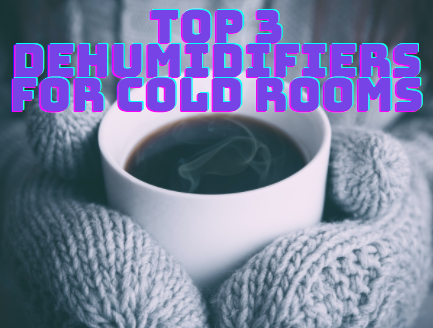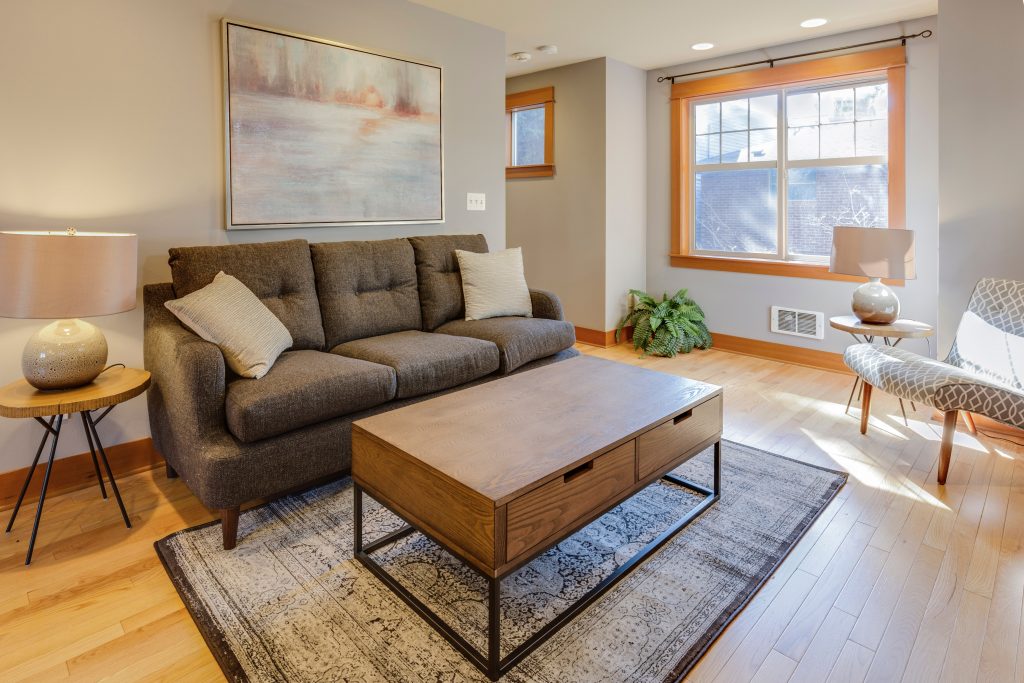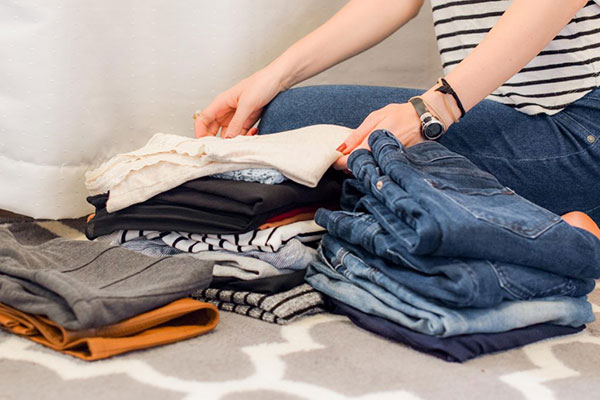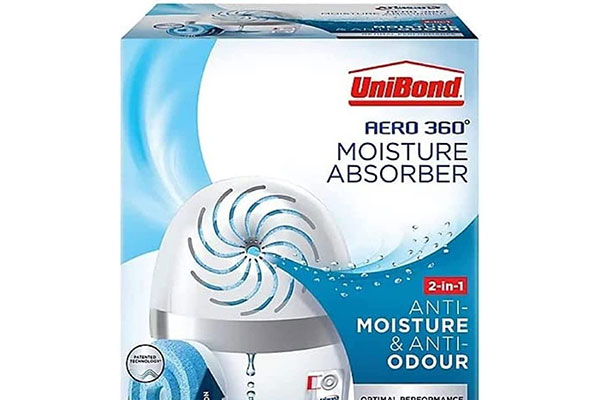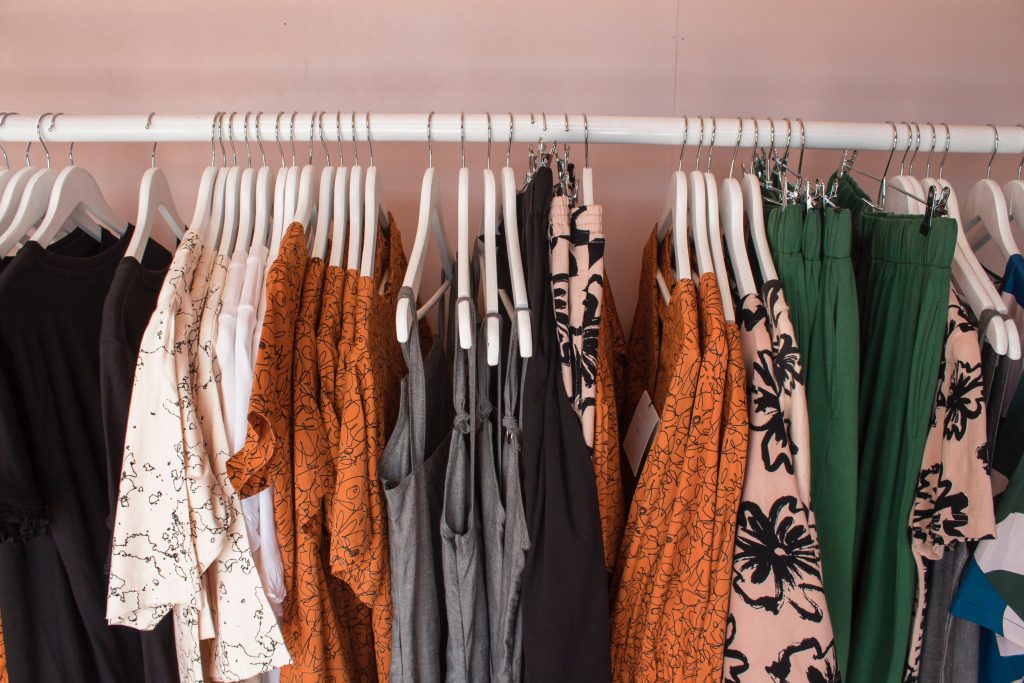Looking for the best dehumidifier for a cold room? you have come to the right place. You have probably heard that there are different types of dehumidifier. However, you might not be aware how well each type works at certain temperatures. This article will help you avoid the big mistake that we see far too many people make, read on.
To put it simply, there are two types of dehumidifier, refrigerant and desiccant. Desiccant dehumidifiers are the most effective for a cold room. We will class a cold room as any room regularly below 15 Celsius. Below this temperature, the performance of most dehumidifiers (refrigerant) falls off a cliff. Desiccant dehumidifiers use a desiccant material and a heating element to absorb moisture. This allows them to operate effectively across a wide range of temperatures. A desiccant dehumidifier should be the go-to choice for a cold room. We have prepared our top 3 desiccant pics below.
In a Hurry? Top 3 Dehumidifiers For Cold Rooms
Here is a quick rundown of our top 3 dehumidifiers for cold rooms:
1 – EcoAir DD1 7L Desiccant Dehumidifier
The EcoAir DD1 7L desiccant dehumidifier is our number one pick for cold rooms. It operates at full capacity from 1 – 40 Celsius. This makes it perfect for cold spaces like garages, basements, outhouses, sheds and conservatories.
The EcoAir DD1 will significantly outperform refrigerant models in temperatures below 15 Celsius. EcoAir is a trusted brand within the dehumidifier world and they produce quality products.
The DD1 comes at a fair price, modest power consumption, high extraction rate and lightweight at only 6kg. It’s very hard to beat EcoAir when it comes to quality dehumidifiers that will last a long time. We have previously conducted a detailed review of the EcoAir DD1 7L in this article.

EcoAir DD1 Simple Blue Desiccant Dehumidifier
- Rotary Control
- 7.5 L/Day
- Quiet 34dBA
- Very eco-friendly with no harmful gas
2 – Pro Breeze 10L Desiccant Dehumidifier
The Pro Breeze 10L is a well-known desiccant model that we are happy to include in our list. It comes in more expensive than the EcoAir DD1 but has a higher extraction rate at 10L.
It comes with a humidistat and timer which are incredibly useful tools. This allows you to set a target humidity or time period for the dehumidifier to work. You can go about your day and leave the dehumidifier to work.
The Pro Breeze 10L is one of the larger and more powerful models on the market, making it ideal for larger cold spaces. The Louvre can oscillate making laundry mode with this model incredibly effective. We have previously conducted a detailed review of the Pro Breeze 10L in this article.

Pro Breeze® 10L Desiccant Dehumidifier
- Extracts up to 10 litres of moisture per day
- Collect water in temperatures as low as 1°C
- Large 3L water tank
3 – Meaco DD8L Desiccant Dehumidifier
Meaco are probably the Uk’s leading dehumidifier manufacturer. They make some of the best dehumidifiers on the market and have a reputation for quality. The DD8L is one of their leading desiccant models. We reviewed other models here.
The Meaco DD8L has the advantage of an automatic mode where the dehumidifier will run until the target humidity level is reached. Once it is reached, it will turn itself off, then test the air again 30 minutes later. If the humidity level has increased it will turn itself back on.
It has excellent build quality, customer feedback and performs excellently from 1 to 40 Celsius. This model has been around a long time and there is a good reason. It remains one of the most reliable desiccant dehumidifiers on the market.

Meaco Portable Compact Dehumidifier
- Extracts 8L per day
- Quieter on low fan speed – just 39dB
Do You Need a Dehumidifier In a Cold Room?
Colder rooms are quite often the most susceptible to dampness. Garages, basements, conservatories and hallways can easily fall victim to excess moisture and dampness. Some of us may also live in older homes where even our living rooms and bedrooms can become quite cold! If you have a cold room (below 15 Celsius) showing signs of dampness such as condensation, mildew or mould, you should definitely get a dehumidifier. If you are unsure, please refer to our article “are dehumidifiers worth it?”
Any of the three desiccant dehumidifiers above will go a long way towards eliminating damp in a cold room. Desiccant dehumidifiers are much better than refrigerant types in cold spaces. It is worth noting that a 7L desiccant dehumidifier will absorb as much water as a 20L refrigerant dehumidifier. This is why you shouldn’t be turned off by the lower extraction rates of desiccant dehumidifiers.
Do Dehumidifiers Work In Cold Rooms?
This is why desiccant dehumidifiers work better in cold spaces – Refrigerant dehumidifiers operate by keeping internal coils colder than the surrounding air. This causes them to freeze up in cold rooms, resulting in the dehumidifier spending lots of time defrosting. While the dehumidifier is defrosting, it isn’t dehumidifying. Desiccant models use a desiccant chemical to extract moisture which is then dried by a heating element. When the desiccant is dried the water drips into the water tank.
There is another huge benefit to getting a desiccant dehumidifier. They can warm the temperature of a room by 10-12 Celsius! This allows you to save money on heating and turn a cold room into a warm one. This makes them extra useful for rooms such as conservatories in wintertime. Desiccant dehumidifiers can get rid of condensation whilst allowing you to enjoy a room in winter. The heating element also makes them magnificent choices for utilising laundry made. The laundry mode of desiccant models is much more effective than refrigerant types due to the heating they provide.
Comparing The Top 3 Desiccant Dehumidifiers
| Model | EcoAir DD1 7L | Pro Breeze 10L | Meaco DD8L |
|---|---|---|---|
| Capacity | 7L/day | 10L/day | 8L/day |
| Water Tank | 2L | 3L | 2L |
| Wattage | >580 | >680 | >650 |
| Weight | 6kg | 7.8kg | 6.4kg |
| Features | 3/5 | 3/5 | 3/5 |
| Price | ££ | £££ | £££ |
Looking at our comparison table we can see that all three models are quite similar. We chose the EcoAir DD1 as our number 1 pick because it currently edges both others on price and value. They share comparable features and it is difficult to conclusively say which one is the best. We know for certain that these three stand out as the best in the current market.

EcoAir DD1 Simple Blue Desiccant Dehumidifier
- Rotary Control
- 7.5 L/Day
- Quiet 34dBA
- Very eco-friendly with no harmful gas
Energy use is hard to judge for desiccant dehumidifiers as consumption varies. The fan speed and running time will all have a big impact on running costs. We previously wrote a very useful article on dehumidifier running costs which you can read here.
Final Thought
For best results, colder rooms require a desiccant-type dehumidifier. Refrigerant types might work fine at room temperature, but they struggle at lower temperatures. A desiccant dehumidifier is the best choice for colder rooms. They will get rid of moisture much faster than a refrigerant dehumidifier whilst blowing out warm air. We hope these facts help you to avoid a common error made by customers! If you have any questions please feel free to comment below.
Last update on 2025-02-28 / Affiliate links / Images from Amazon Product Advertising API

